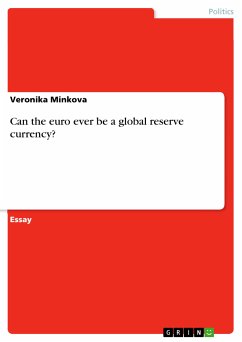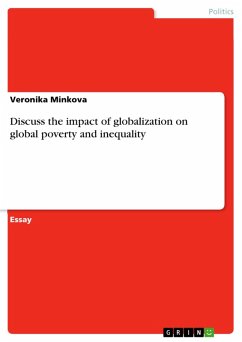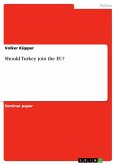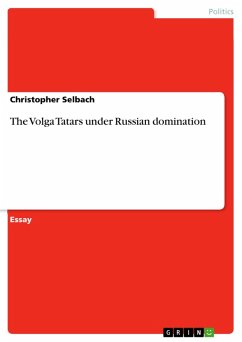Essay from the year 2010 in the subject Politics - Topic: European Union, grade: 1,3, King`s College London, language: English, abstract: After the first decade of the advent of the euro, analysts have examined the prospect of the European common currency to become not only regional currency, but also its usage to spread internationally. Not only has the euro proved to be more than a powerful symbol of collective identity, but it has also provided price stability, it has been a shelter against currency crises and it has attracted new member states that wish to join the euro area. However, this positive landscape has changed in the face of the global financial crisis and the Greek budgetary crisis. Many have seen the euro only as 'a fair weather currency' arguing that confluence of factors facilitates the euro's deficiency of becoming 'bad weather currency' such as economic divergence and internal imbalances between member states. The first section of the essay discusses the benefits and costs of issuing an international currency. By applying the three attributes of money to the euro, the second section reviews the euro's performance as a medium of exchange, unit of account and store of value. The final section identifies factors which hinder the European common currency's success as an international currency. These factors include: inertial forces characterising the financial markets, governance design of EMU, member states' internal imbalances, fragmentation of financial markets, non-economic limitations and the European Union's discouraging stance towards the euro's international status.
Dieser Download kann aus rechtlichen Gründen nur mit Rechnungsadresse in A, B, BG, CY, CZ, D, DK, EW, E, FIN, F, GR, HR, H, IRL, I, LT, L, LR, M, NL, PL, P, R, S, SLO, SK ausgeliefert werden.
Hinweis: Dieser Artikel kann nur an eine deutsche Lieferadresse ausgeliefert werden.









